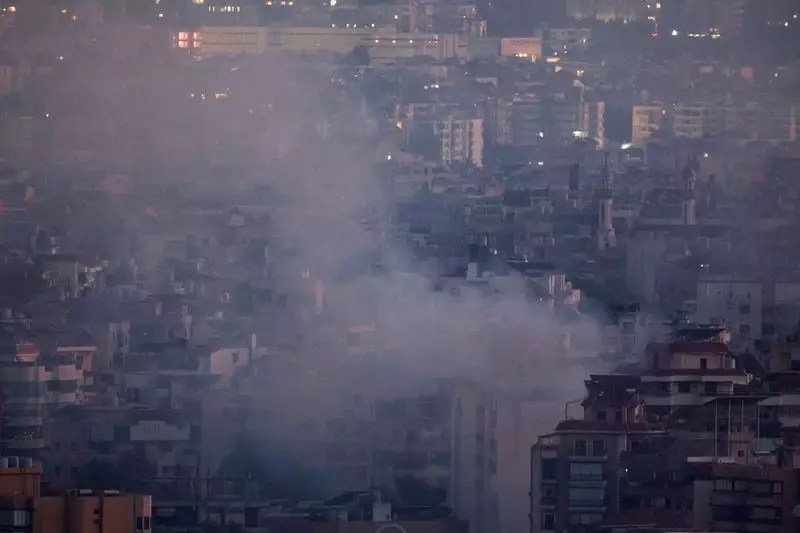In a striking demonstration of the ongoing hostilities shaping the Middle East landscape, Israeli airstrikes have intensified, marking a significant escalation in the conflict with Iran-aligned militant groups. Among the unsettling developments was the recent killing of three leaders from the Popular Front for the Liberation of Palestine (PFLP) in Beirut’s Kola district. This event exemplifies an alarming trend where urban centers once considered safe havens are now becoming battlegrounds. As the Israeli military shifts its strategies, the dire consequences for the local population and regional stability become increasingly apparent.
The airstrike that took place on Monday represents the first attack within the heart of Beirut, highlighting a critical turning point in the conflict. For years, Israel has primarily focused its military actions on southern Lebanon and Hezbollah’s strongholds. However, the strike’s location raises questions about the broader tactics employed by Israel in its ongoing campaign against Iran’s proxies. The ramifications of such military decisions not only elevate tensions but also threaten a wider conflict involving international players like Iran and the United States.
The human toll stemming from these military operations cannot be understated. Reports indicate that over a million people—approximately one-fifth of Lebanon’s population—have been displaced due to the relentless airstrikes. Furthermore, Lebanon’s Health Ministry has reported over 1,000 fatalities and thousands more injured in the past two weeks alone. Among these casualties are military leaders and civilians caught in the crossfire, leaving entire communities devastated. The emotional and psychological impact on the displaced populations, many of whom have sought refuge in public spaces or under bridges, showcases the humanitarian crisis unfolding as conflict rages on.
The recent airstrikes raised alarms not only for their immediate consequences but also for their broader implications. In response to perceived threats from militant groups such as Hezbollah and the Houthis, Israel has ramped up its military presence and actions across the region. This cycle of retaliation leads to significant loss of life and property while fueling hatred and animosity. The plight of innocents in conflicts like these often goes overlooked, forgotten amidst political maneuvering and military strategies.
As Israel conducts air raids across Lebanon and Yemen, the notion of a widespread Middle Eastern conflict is becoming more plausible. Increased military actions against Hezbollah and the Houthis signal a willingness to engage in larger confrontations that could draw in major powers. Current strategies not only aim at targeting militant capabilities but also hold the potential for spiraling into direct confrontation with Iran. In this context, the situation remains volatile, with diplomatic solutions appearing further out of reach.
International authorities, notably the United States, have echoed sentiments advocating for a diplomatic resolution. However, amidst these calls for peace, the authorization of additional military reinforcements in the region complicates the overall effectiveness of diplomacy. It seems evident that military strategies often overshadow humanitarian considerations, exacerbating rather than alleviating the crisis.
The cycle of violence that has engulfed Lebanon brings about critical questions for the international community: How can peace be salvaged amid chaos? Will regional powers take steps to de-escalate tensions, or will they find themselves entrenched within a broader conflict? With uncertainties looming large, it is imperative for all involved stakeholders to reconsider their approaches in favor of dialogue and diplomacy rather than retaliatory action.
The recent Israeli attacks in Beirut signal not just a localized conflict but a potential regional crisis with far-reaching implications. As cities become war zones and populations bear the brunt of military actions, the question remains: how long can this trajectory continue before the region faces an irreversible catastrophe? Countries across the globe should prioritize humanitarian efforts and encourage diplomatic negotiations to avert impending disaster. Only through unity and understanding can the cycle of violence be broken, paving the way for a more stable and peaceful Middle East.


Leave a Reply